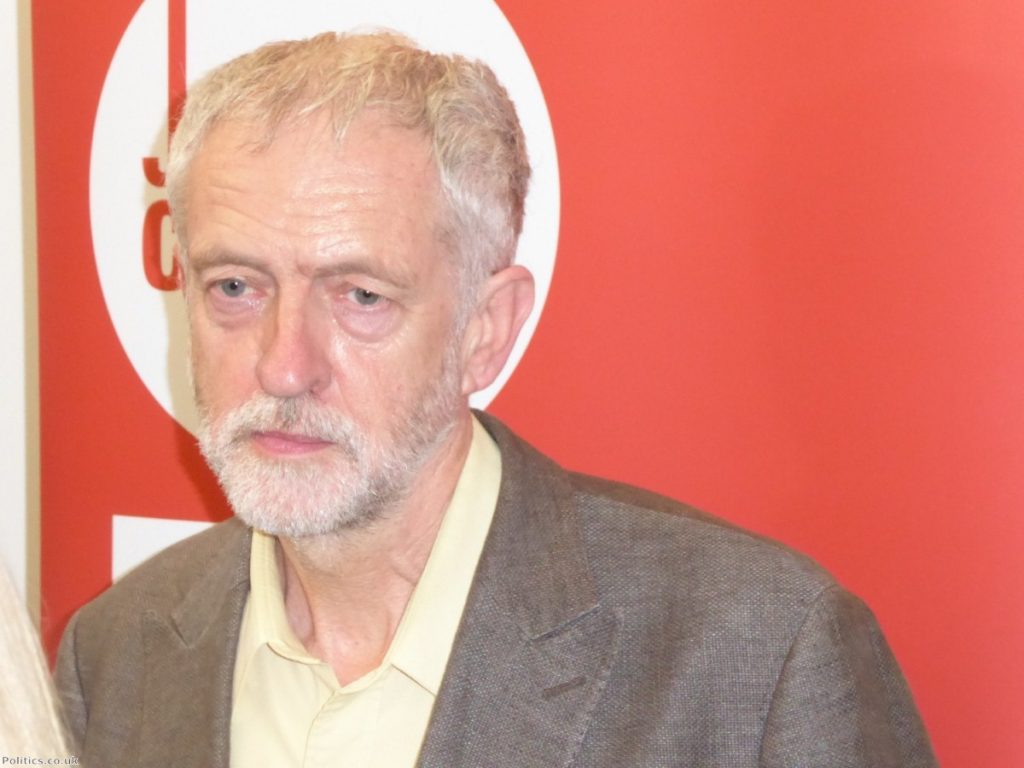By Nick Barrett
For the last year and a half, moderate Labour party members, MPs and activists have been holding their heads in their hands as the party's poll numbers languished in the mid-to-low twenties. Poll after poll has exposed an unpopular leadership and an unresponsive communications strategy.
The only thing more frustrating to party moderates than the incorrigibly weak numbers was the complacency of the leader and his team. Corbyn or his inner circle seemed to relish such a response because his mandate is perceived as a delayed reaction to the endless spin and sloganeering of the New Labour years.
To his supporters, he has represented a fresh, innocent and authentic style of politics. At times, his leadership has conveyed an appealing contrast with David Cameron, a man for whom every minor muscle movement was carefully cultivated to massage the bland underbelly of middle England. Corbyn was going to be consistent and principled. He wasn't going to agonise over polling data, and we were never going to watch him desperately chase public opinion down a right-wing rabbit hole.


And so his loyal supporters attended meetings and rallies. They argued with their friends and family about why they went out in the rain to deliver leaflets. Even if you disagreed with them, or simply considered their activism to be futile, it was often inspiring to see people who had once given up on politics suddenly making an effort on behalf of the weakest in society.

And so it was quite remarkable that a sudden blast of political sobriety seems to have prompted Corbyn to vote against so many of his deeply held principles. By voting to allow Theresa May to take Britain out of the single market – and forcing his MPs to do the same – he has effectively sanctioned the birth of a new tax haven, one which will struggle to sustain an understaffed and underfunded National Health Service without significant private sector intervention.
He also voted to exacerbate the insomnia of three million foreign European citizens – the new hostages of our awkward EU exit – who have no idea if they will be allowed to continue living and working in Britain. European workers rights' and environmental protections will now be redrafted by a government that would struggle to articulate its disagreements with Ukip.
Devoid of influence on the continent, Britain will be of limited use to America's new president, beyond that of a figleaf for his administration's illiterate approach to foreign policy. A trade deal from the Oval office will have to be signed, regardless of the content. Deference to Donald Trump will be the price of the supposed sovereignty assented to by a staunch socialist voting in favour of a hard Brexit. It is hard to imagine any single action more counterproductive to the ambitions of the Labour party, Corbyn and his loyal supporters.
Did Corbyn have to vote for Article 50? Perhaps he did. A multitude of Labour constituencies voted to leave the European Union. Remain voters with strong feelings on the matter are likely to have already been seduced by Tim Farron or Nicola Sturgeon. And losing a by-election to Ukip in Stoke would provide a severe and humiliating wound. Politics is, and always has been, a messy art of compromise. Perhaps the Daily Mail's polemicists will give Corbyn a day off, maybe Nigel Farage won't insult him on LBC for a few weeks, but it will still leave some wondering… what is the point of him exactly?

The Labour leader surely knows that leaving the EU will act as a counterproductive force in the depressed towns and cities that instigated our exit. Almost every sensible economist is predicting a permanent dent in the growth of British living standards as a result of a hard Brexit and it seems evident that the power to redefine our island will now fall into the hands of a radical and unelected Tory government.
Our predicament is not the sole responsibility of Jeremy Corbyn; who is, like most of us, a victim of seismic historical, cultural and political trends. But what Corbynism presented was a transcendence of politics as we knew it, a powerful and compelling assertion that virtuous principles alone could change Britain. Sadly, this has never been the case. Voters may grow to lament calculating and compromising figures such as Alastair Campbell and Nick Clegg, both of whom have radicalised far more young people than Jeremy Corbyn ever will. But what is often forgotten is that these characters are consistently created and rewarded by capricious British electorates.
According to the Roman historian Mike Duncan, the public has always behaved as "an irrational, self-interested, short-sighted blob of contradictions" and yet, it is only the public who can grant politicians the privilege of elected office. Naturally, the leaders who adapt best are those with the ability and the inclination to improvise and to reinvent themselves when necessary. Corbyn's defining sin is not one of duplicity; it is merely one of false advertising.
But whatever the motives, his decision to impose a three-line whip on the Brexit vote must surely have broken the faith of any but the most committed supporter. This week's vote did not just kick-start Brexit. It signals the end of the Corbyn love affair.
Nicholas Barrett is the deputy editor of the TheStrix.com. You can follow him on Twitter here.
The opinions in politics.co.uk's Comment and Analysis section are those of the author and are no reflection of the views of the website or its owners.









